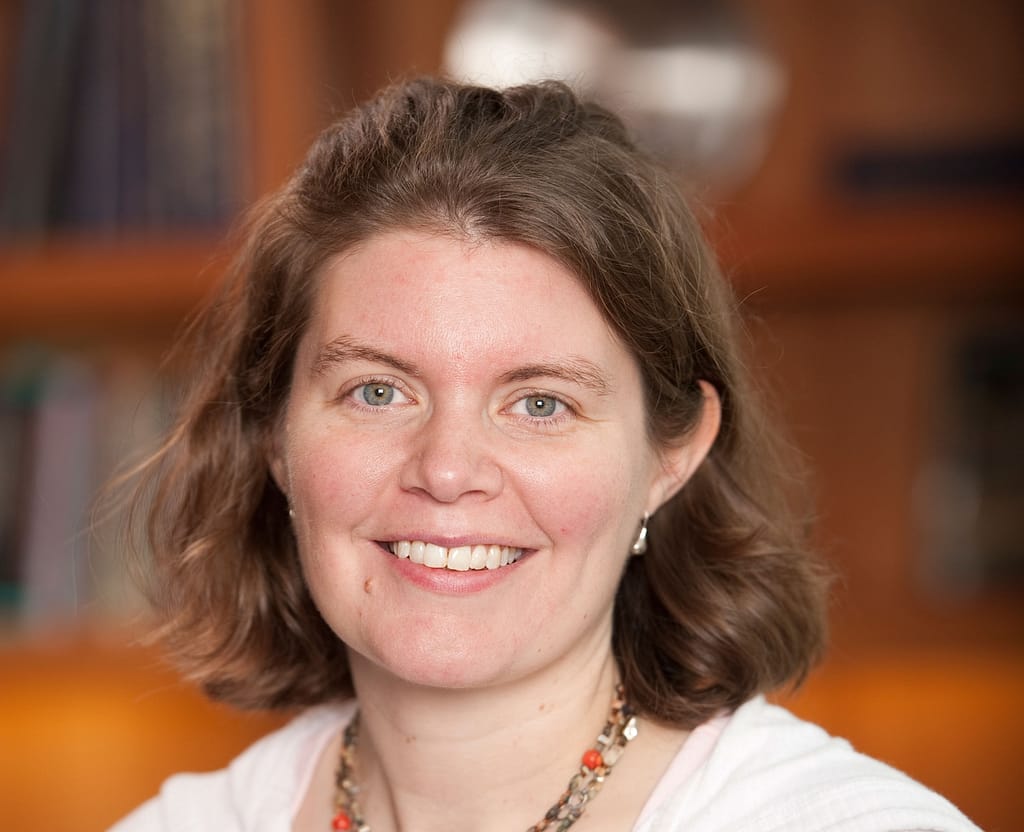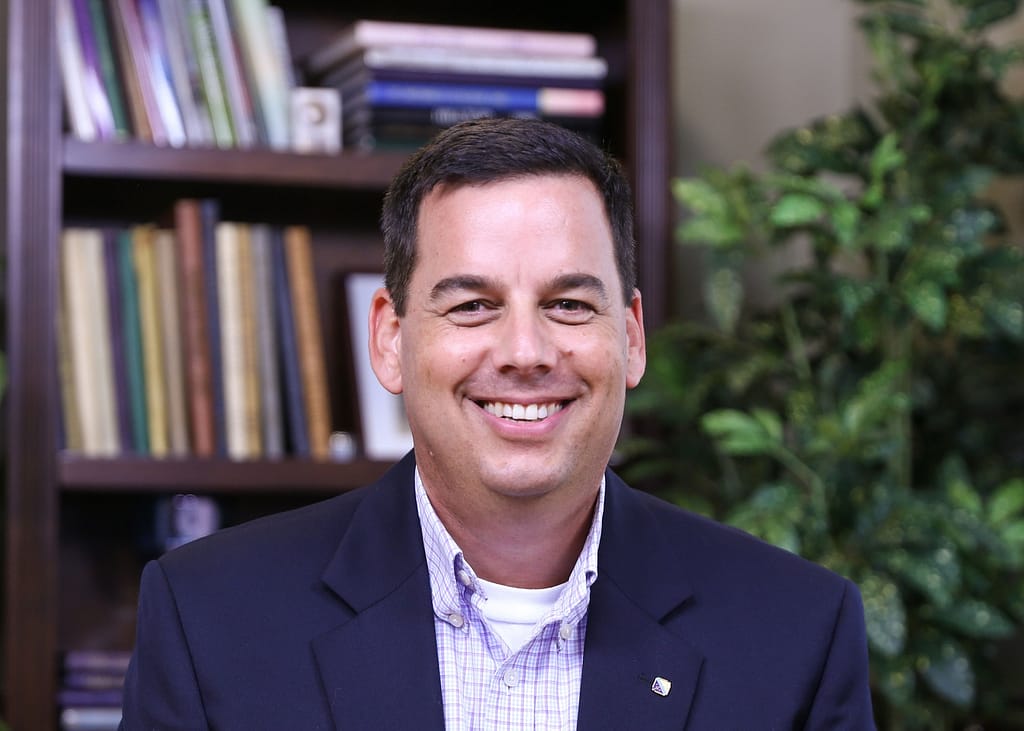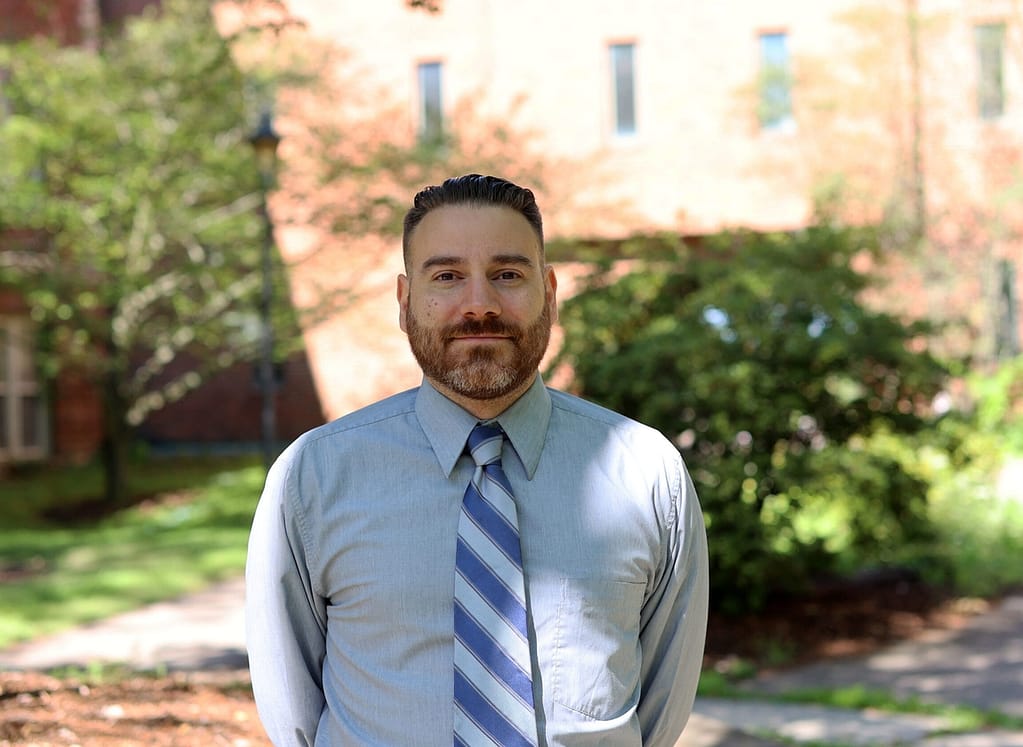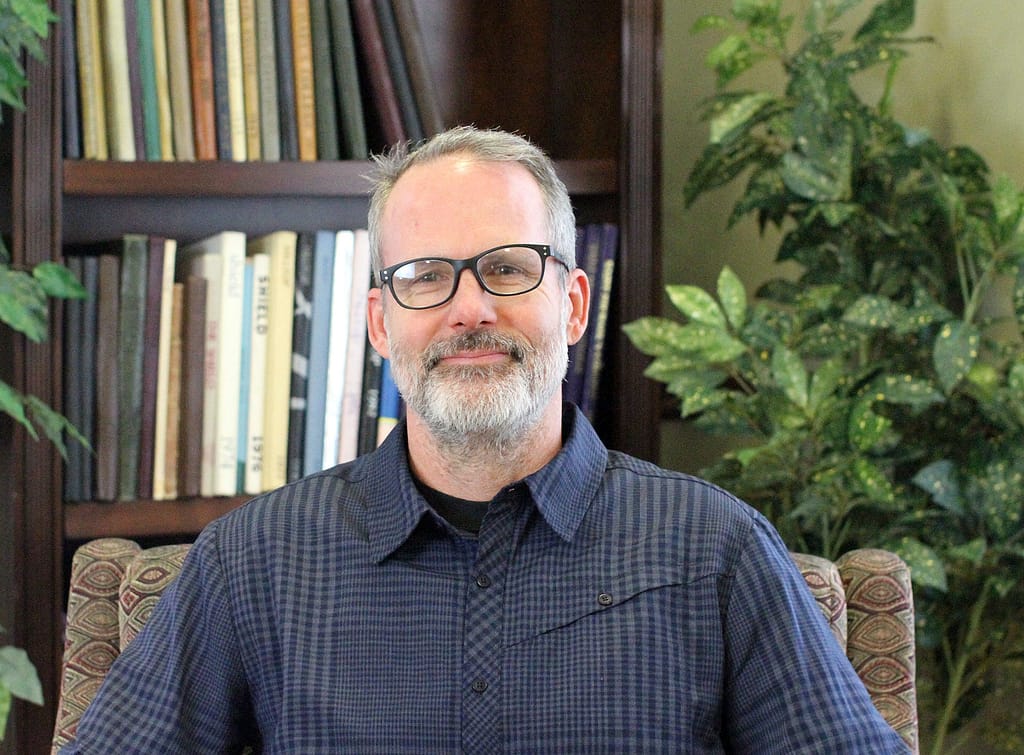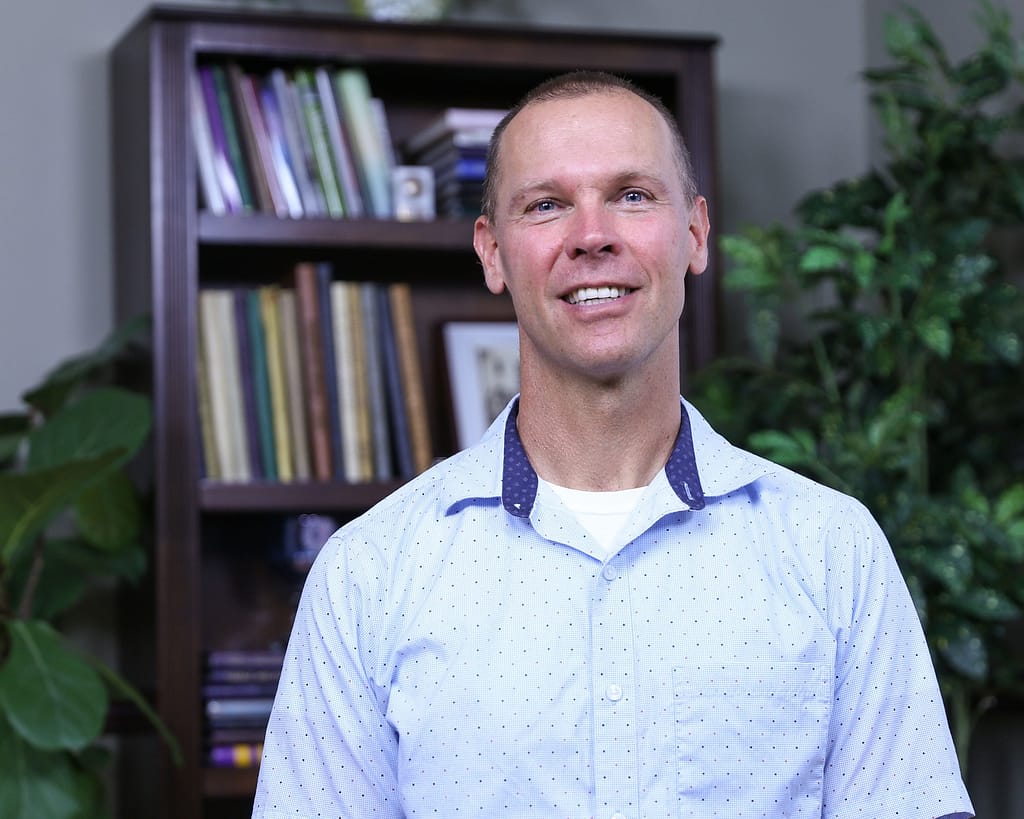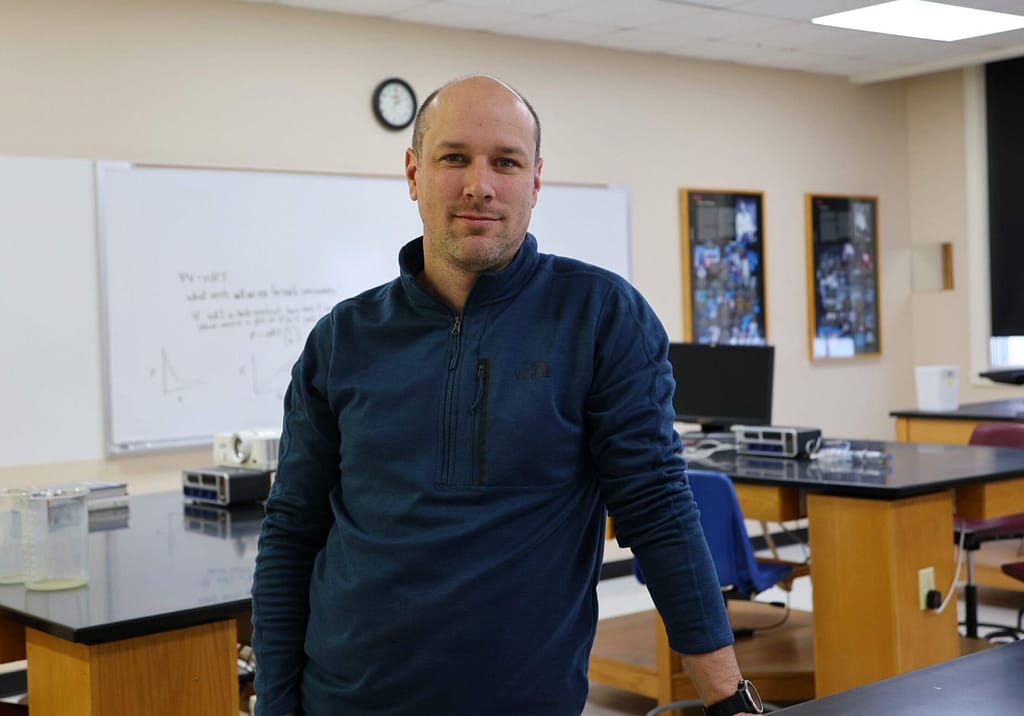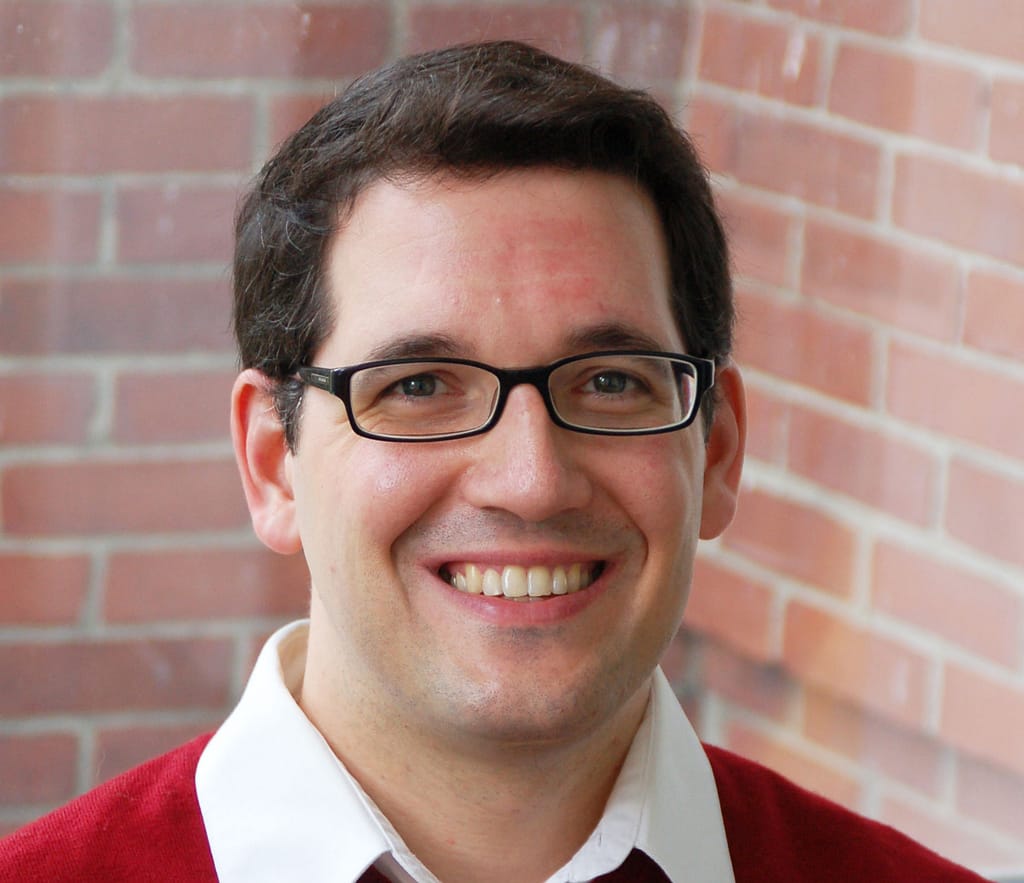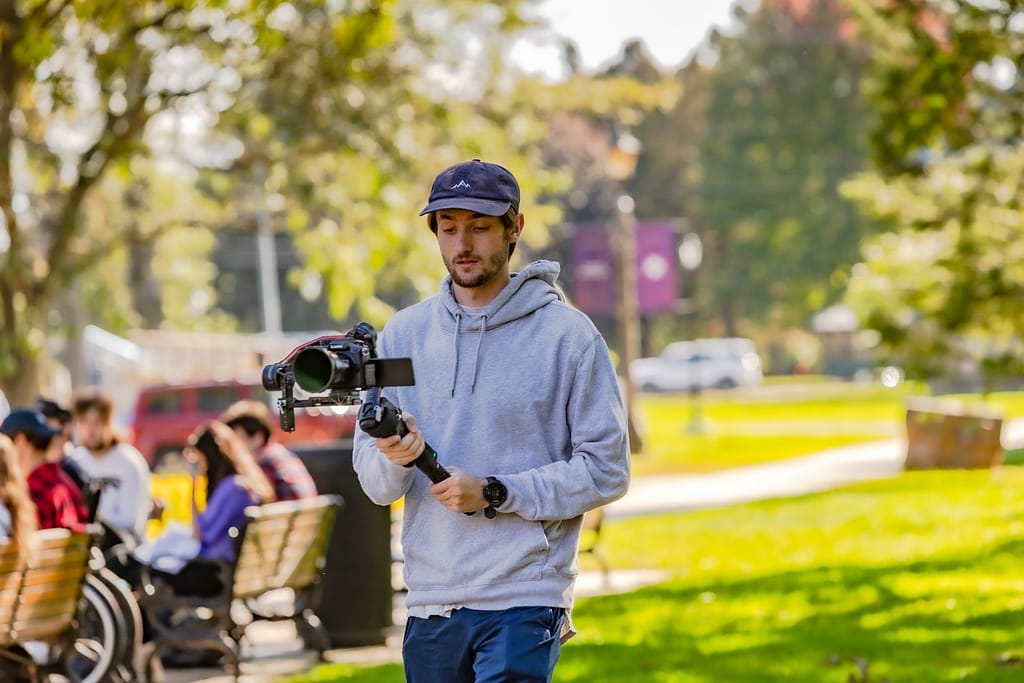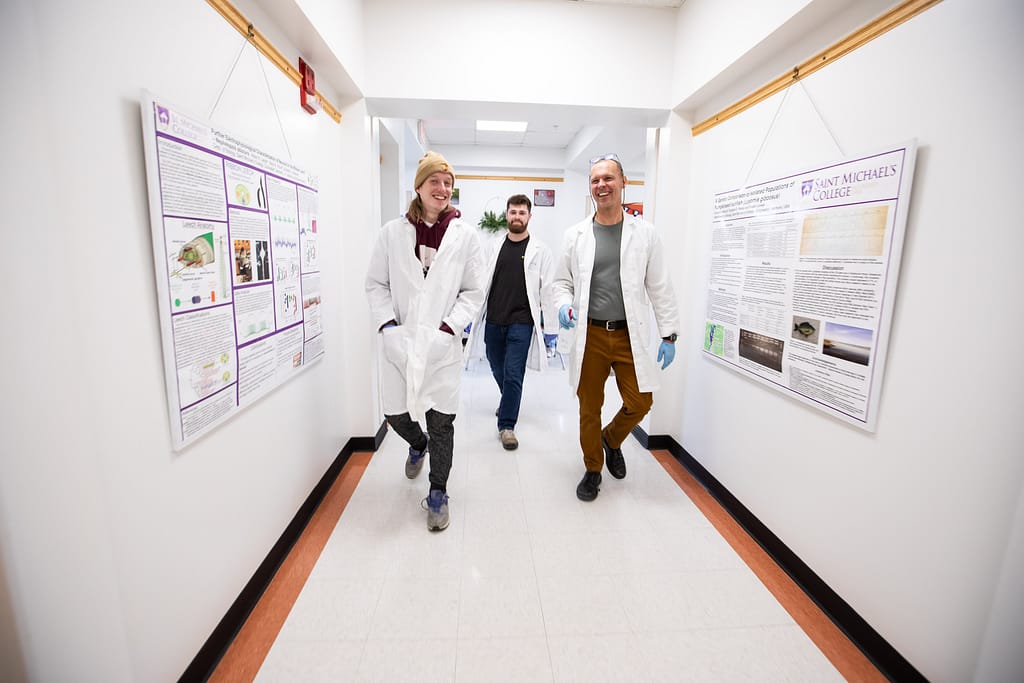About
Combine your interests in the biological and physical sciences by becoming a biochemistry major at Saint Michael’s College.
The biochemistry curriculum at Saint Michael’s College combines small class size, excellent faculty, and personal attention with the opportunity to gain practical, hands-on experience with a variety of techniques and instrumentation, and to conduct research or independent study with a faculty mentor.
A bachelor’s degree in biochemistry prepares you for employment in academic, industrial, and government laboratories or for further study in graduate or professional schools, including forensics, medicine, pharmacy, and many other allied health programs.
Learn more about the Biochemistry program from our Saint Michael’s professors in the video below:
In Depth
Our program emphasizes the relationships between the structure and function of living things, and the health and medical connections to those relationships.
As a Biochemistry major, you will start with the biology and chemistry courses that provide the background necessary to study biochemistry. Those courses include Ecology and Evolution, Molecular Genetics, Cell Biology, General Chemistry, and Organic Chemistry. In the Biochemistry sequence, you will learn about the four major categories of structures that make up biological systems–peptides/proteins, carbohydrates, nucleic acids, and lipids. Then you will go on to study biological membranes, enzymes, lipid and carbohydrate metabolism, and topics in nutrition.
In your Senior Seminar, you will research a biochemistry topic in great depth. You have two options to present your research: prepare a major report on the topic, or develop a research proposal based on the topic (modeled after the process whereby scientists procure funding for research). For examples of recent Biochemistry senior projects, go to Seminar Projects.
Careers
Students who graduate from our program have a wide variety of career options. Upon graduation, they are qualified to move directly into jobs in industrial, government, and academic laboratories and are prepared to apply for admission to many healthcare professional programs, including medical, nursing, and pharmacy schools.
Our students are also well prepared for graduate studies in biochemistry and, with additional electives, for graduate studies in biology and chemistry. Our graduates get advanced degrees in fields such as biochemistry, organic chemistry, pharmacy, pharmaceuticals, forensics, and science teaching.
Recent Biochemistry graduates are currently in graduate programs at:
- University of Vermont
- University of Toronto
- University of Hawaii
- Ohio State University
- City University of New York.
Research
We can help you identify and apply for student research grants on the state and national level. Many of our students who are awarded these grants work one-on-one with a faculty member during the academic year and during the summer months on campus.
You can also conduct research through programs with other institutions such as Lafayette College, UMass Amherst, UVM and the University of Wisconsin-Madison.
In Depth
Our program emphasizes the relationships between the structure and function of living things, and the health and medical connections to those relationships.
As a Biochemistry major, you will start with the biology and chemistry courses that provide the background necessary to study biochemistry. Those courses include Ecology and Evolution, Molecular Genetics, Cell Biology, General Chemistry, and Organic Chemistry. In the Biochemistry sequence, you will learn about the four major categories of structures that make up biological systems–peptides/proteins, carbohydrates, nucleic acids, and lipids. Then you will go on to study biological membranes, enzymes, lipid and carbohydrate metabolism, and topics in nutrition.
In your Senior Seminar, you will research a biochemistry topic in great depth. You have two options to present your research: prepare a major report on the topic, or develop a research proposal based on the topic (modeled after the process whereby scientists procure funding for research). For examples of recent Biochemistry senior projects, go to Seminar Projects.
Careers
Students who graduate from our program have a wide variety of career options. Upon graduation, they are qualified to move directly into jobs in industrial, government, and academic laboratories and are prepared to apply for admission to many healthcare professional programs, including medical, nursing, and pharmacy schools.
Our students are also well prepared for graduate studies in biochemistry and, with additional electives, for graduate studies in biology and chemistry. Our graduates get advanced degrees in fields such as biochemistry, organic chemistry, pharmacy, pharmaceuticals, forensics, and science teaching.
Recent Biochemistry graduates are currently in graduate programs at:
- University of Vermont
- University of Toronto
- University of Hawaii
- Ohio State University
- City University of New York.
Research
We can help you identify and apply for student research grants on the state and national level. Many of our students who are awarded these grants work one-on-one with a faculty member during the academic year and during the summer months on campus.
You can also conduct research through programs with other institutions such as Lafayette College, UMass Amherst, UVM and the University of Wisconsin-Madison.
